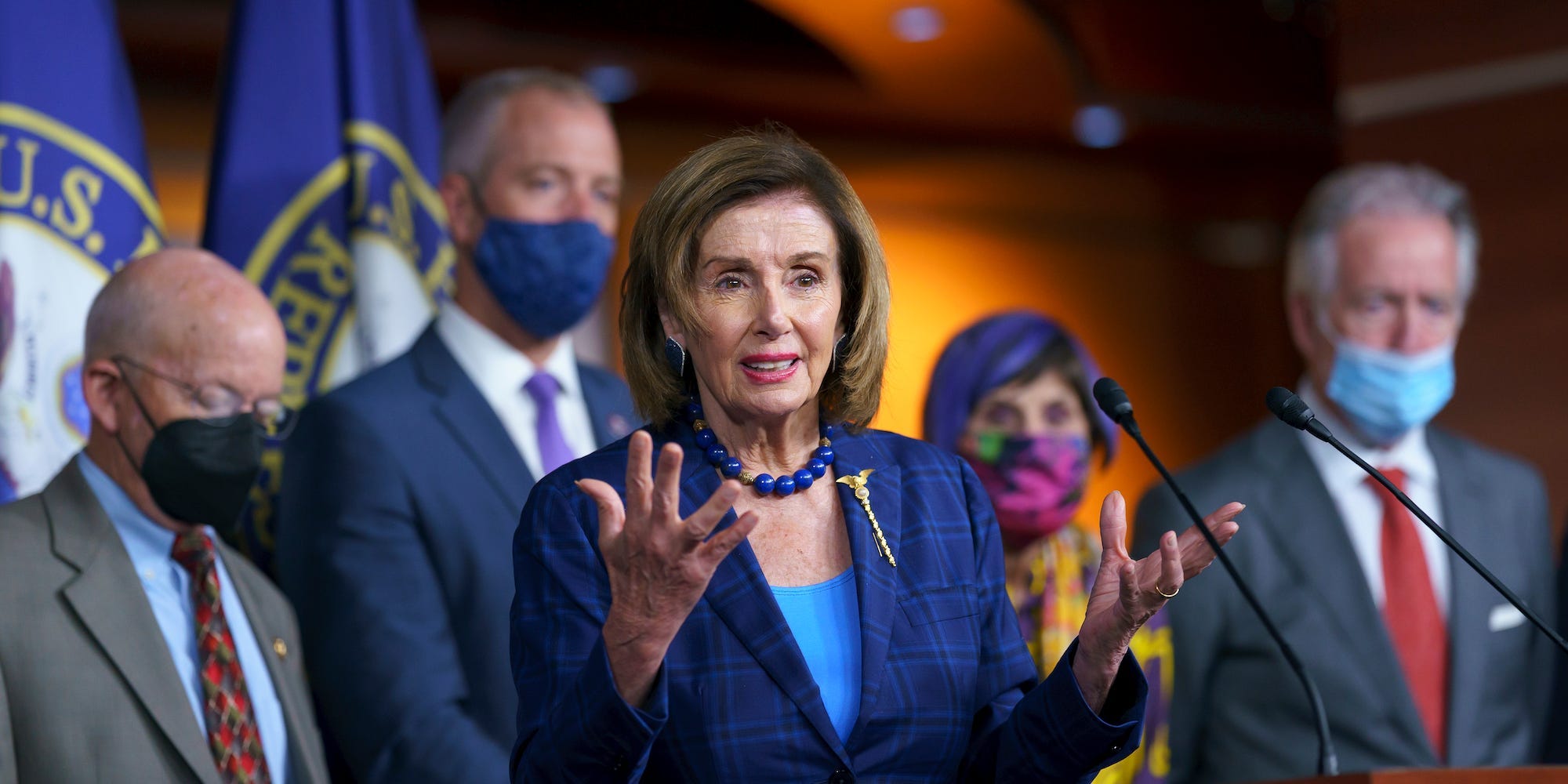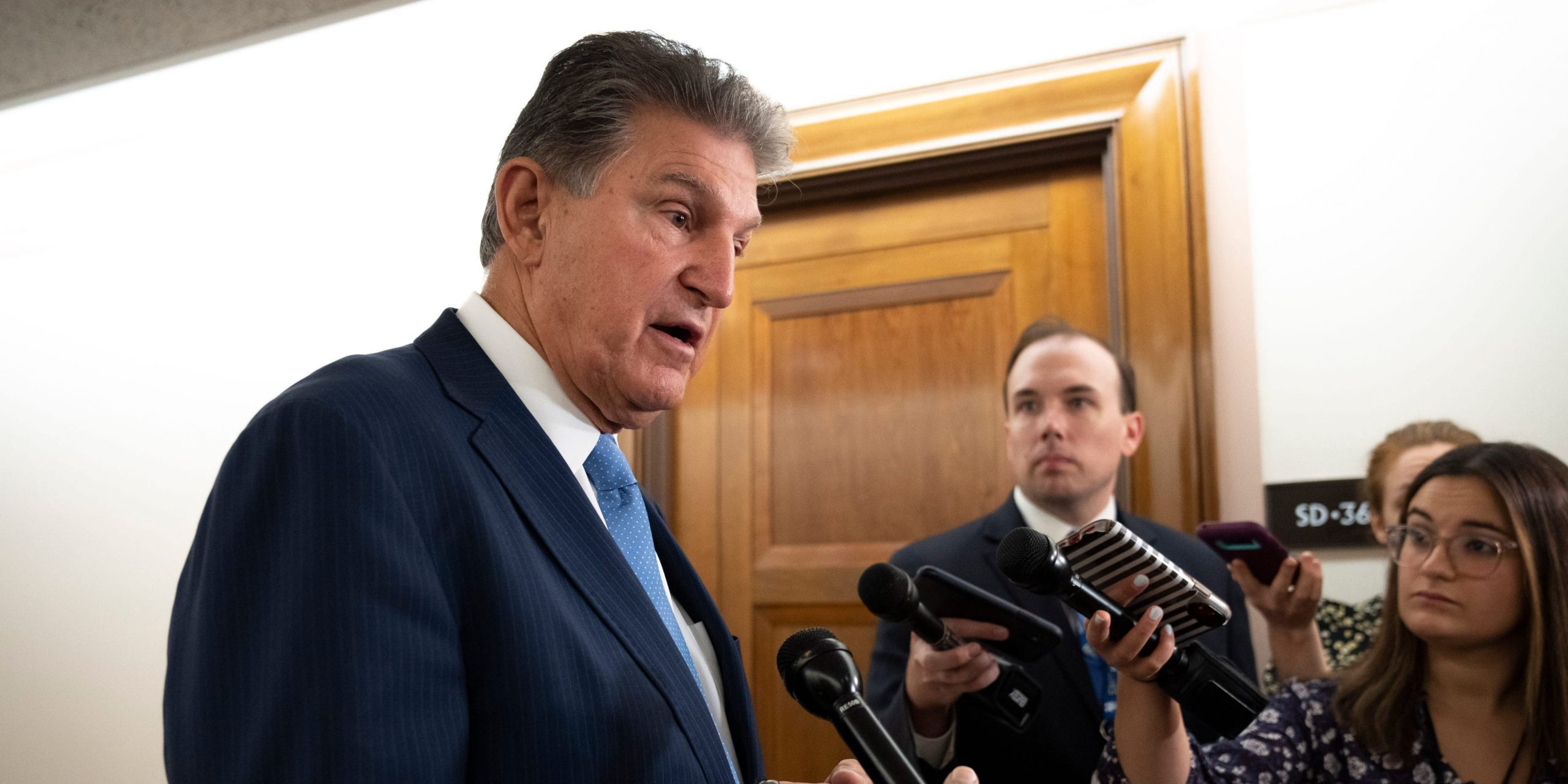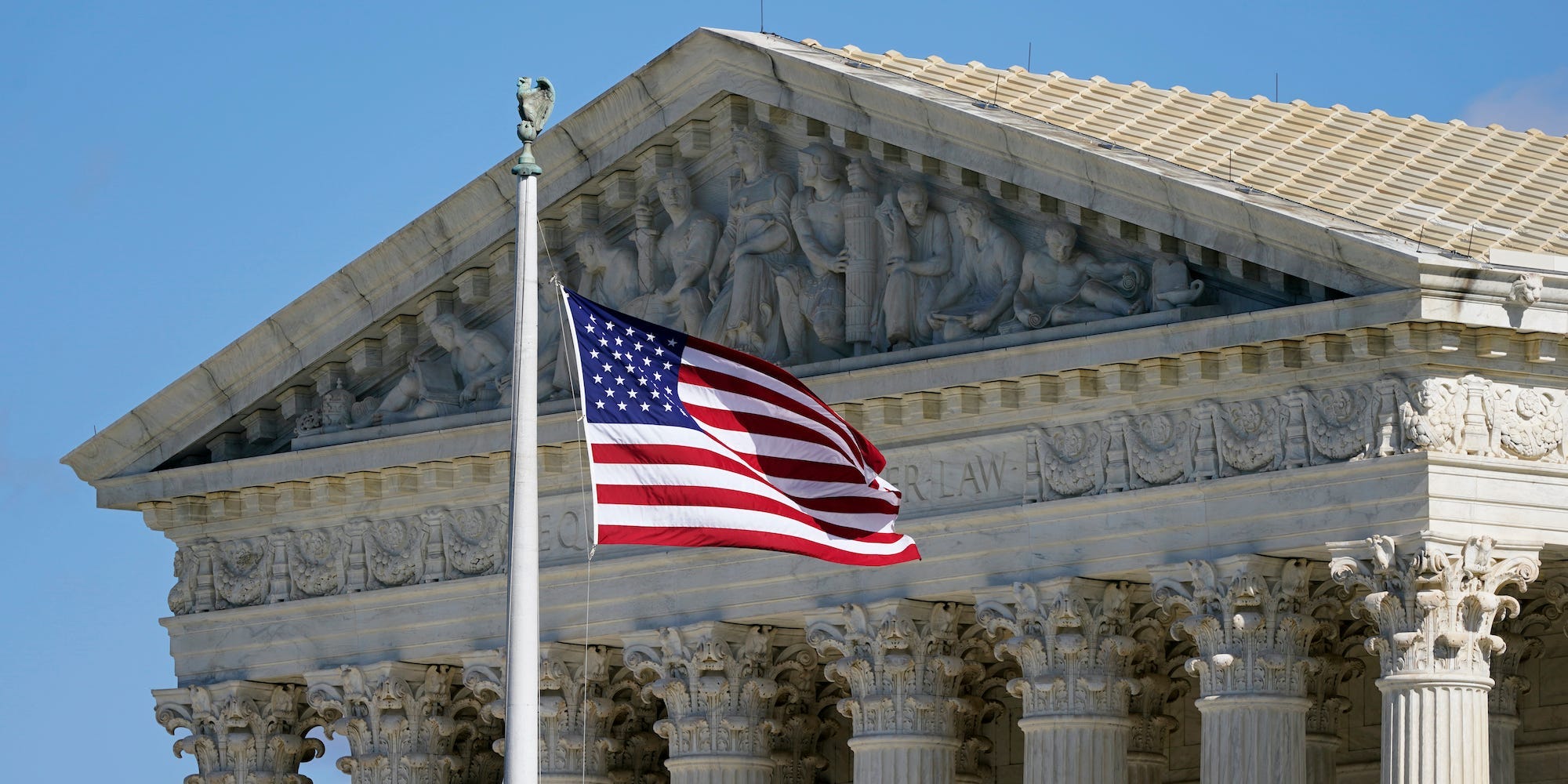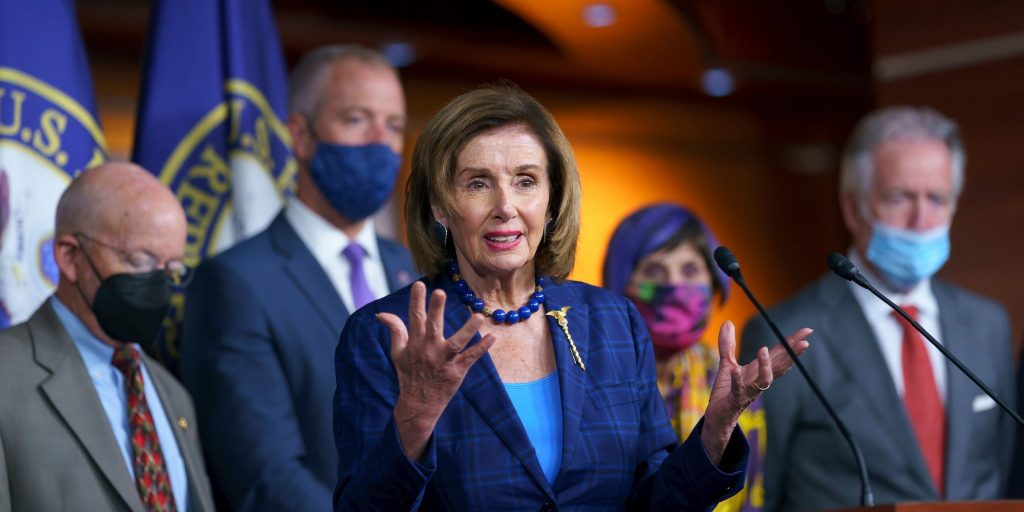
Scott J. Applewhite/AP
- Democrats in Congress are taking on voting rights with renewed vigor after weeks of focus on infrastructure.
- Both chambers are looking to introduce and pass voting rights legislation in the upcoming weeks.
- But both the House and Senate are set to be out on recess for much of August.
- See more stories on Insider's business page.
Democrats in the White House and both chambers of Congress are rushing to take action on voting rights before the August recess, with a group of House lawmakers calling for a "sword and shield" approach involving new voting rights legislation and the restoration of a key provision of the Voting Rights Act of 1965.
Voting rights has largely taken a backseat to the bipartisan infrastructure bill after Senate Republicans in June filibustered the For the People Act, Democrats' flagship voting rights and democracy reform package that included sweeping new voting rules, campaign finance regulations, and ethics reforms.
But the pressure from outside Washington, DC, coming from activists and state lawmakers hasn't dwindled.
In particular, civil rights leaders continue to push the White House. And in mid-July, over 50 Democratic members of the Texas House of Representatives left the state altogether to deny the quorum necessary to pass new GOP-backed voting legislation, coming to Washington to appeal directly to Congress.
A group of Senate Democrats, including Majority Leader Chuck Schumer, and Sens. Amy Klobuchar, Joe Manchin, Raphael Warnock, and Alex Padilla, is now working on a slimmed-down, voting-rights focused version of the legislation.

Drew Angerer/Getty Images
Manchin, the most moderate member of the group, wrote an op-ed, expressing reservations with the 800-plus page version of the For the People Act passed by the House and eventually blocked in the Senate. Before the bill came up for a vote in late June, Manchin outlined his own compromise proposal, which includes a national requirement for voters to show a non-photo ID to cast a ballot, 15 days of early voting, automatic voter registration, and a ban on partisan gerrymandering.
"That's what we've got to come up with," Klobuchar told Insider on Friday, when asked how similar the group's working proposal is to Manchin's compromise. "We've got to come up with a bill that works for everyone. We were close before, we're getting closer now."
Schumer, who along with House Speaker Nancy Pelosi was set to meet with President Joe Biden on Friday afternoon regarding plans for voting rights legislation, also told reporters on Friday afternoon that the group is "working on" a voting rights proposal.
Speaking with reporters after a Friday press conference on infrastructure, Manchin reiterated his support for a federal voter ID requirement but left open the possibility of that provision being excluded from the bill and voter ID being left up to states if the group can't come to an agreement.
Both chambers' recesses could be cut short by pending legislation
On the House side, after months of hearings building up the legislative records necessary for the bill, lawmakers are expected to unveil the text of the John Lewis Voting Rights Advancement Act in the next week.
The bill, a long-awaited priority of civil rights leaders, would restore a provision of the Voting Rights Act of 1965 that required states with histories of racial discrimination to seek approval from the federal government before enacting new voting policies. The Supreme Court in 2013 struck down the previous preclearance formula in Shelby v. Holder.

Patrick Semansky/AP
In a Friday news conference, House Majority Whip Rep. Jim Clyburn announced that the final version of the bill would be written and ready to be taken up for a vote by August 6, the 56th anniversary of the enactment of the Voting Rights Act of 1965.
"I think that we will have a product going to the Senate by next week at this time," Clyburn said.
The Senate is set to be in session for another week before going on four weeks of August recess, although Majority Leader Chuck Schumer has left open the possibility of recess being cut to pass infrastructure and budget reconciliation legislation.
House members, meanwhile, are scheduled to leave town for seven weeks of recess starting on July 30, with no votes currently scheduled until September 20, although Axios reported Tuesday that the the lower chamber's recess also stands to be interrupted when the Senate passes a bipartisan infrastructure deal.
"I know we are supposed to be out next week, but I am realistic enough to know that we may not be out next week or the week following," Clyburn said.
Pelosi, for her part, added that the bill needs to be "ironclad constitutionally" and "when it is ready is when we'll call members back."
Joseph Zeballos-Roig contributed reporting.

